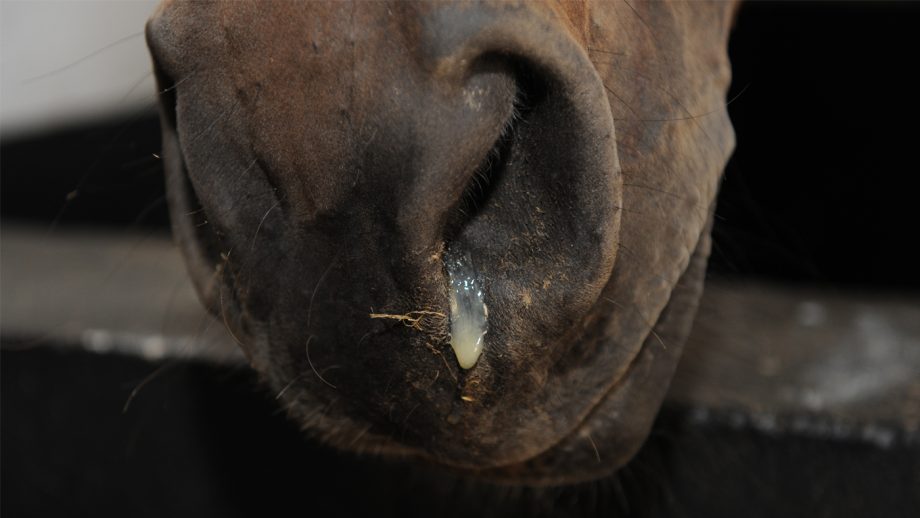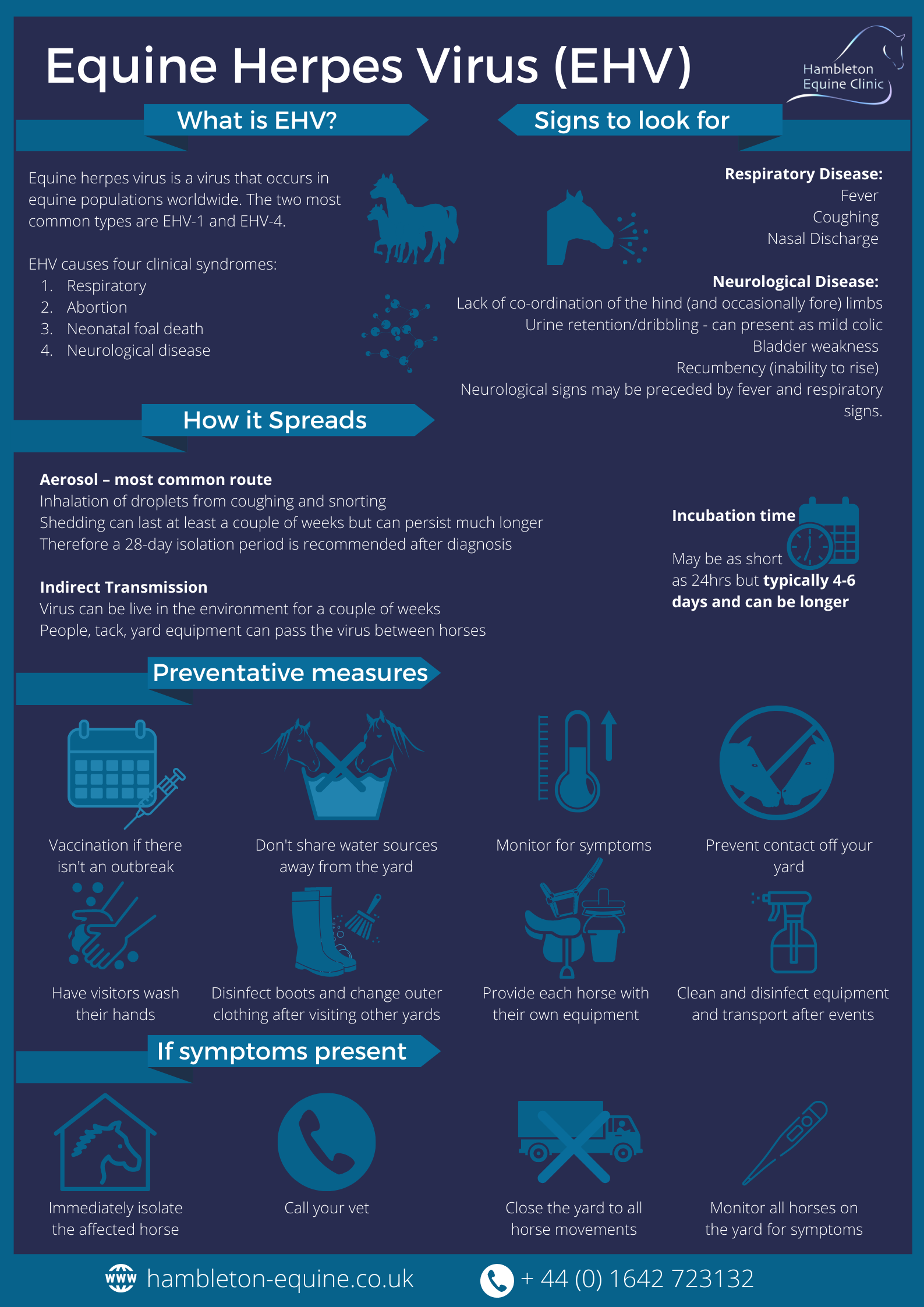We understand that our clients might be concerned regarding recent local cases of Equine Herpes Virus (EHV) and want to ensure that you can keep your horses and ponies safe and healthy. We have compiled some information about EHV to dispel the false rumours and myths and give you some veterinary advice so you know what to look for.
Q: What is EHV and what does it cause?
EHV is a serious equine disease caused by a virus. It is responsible for four clinical syndromes the first three of which are respiratory, abortion and neonatal foal death. The fourth syndrome, the neurological disease (EHM) may or may not be related to previous or on-going respiratory disease. The neurological form of the disease is rare.
Q: how does an outbreak happen?
Many horses are exposed to the virus at some time in their lives and in some horses after EHV infection the virus can remain dormant in the body of the horse. It can then be reactivated at a later stage and the horse can start to shed the virus again. This is similar to herpes virus in humans. Reactivation of the dormant virus is often associated with stress. Once a horse starts shedding the virus it is easily transmitted between horses, prompt diagnosis and management is vital to reduce the spread of the virus.
Q: What signs must I look out for?
For the respiratory disease, look for fever, coughing and nasal discharge. For the neurological disease look for poor co-ordination of the hind (and occasionally fore) limbs, urine retention/dribbling (which can also present as colic), bladder weakness and lying down then unable to get up.
Q: How is it spread?
The most common way that the disease is spread is by aerosol transmission of tiny droplets containing the virus ( for example coughed or breathed out by an infected horse). Virus is usually shed for 7-10 days but can be for longer, so 28 day isolation is necessary. The virus can also be passed on directly from horse to horse or indirectly by people, tack, equipment and shared water troughs or feed buckets.
Q: What measures should I take to help prevent this?
Your best defence is the biosecurity measures that you take. That means cleaning and disinfecting, not sharing feed buckets or equipment, not allowing communal drinking sources and avoiding close contact between horses. Vaccination is useful however, vaccination in the face of an outbreak is not recommended and is contra-indicated for horses who may have been exposed to the virus. The vaccine does not protect against the neurological form of the disease. In general you should try to reduce stress by maintaining routines, keeping groups of horses fixed, avoiding long journeys and avoiding relocation.
Q: What do I do if I suspect my horse is sick?
You should call you vet immediately and seek advice for your situation. You must also immediately stop all horse movement on and off the premises. Your vet will be able to advise you about the measures that must be adhered to if EHV is confirmed.


